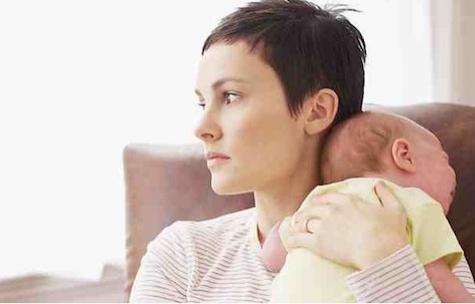Researchers have discovered that depressed mums tend to suffer in silence rather than seek help.
According to the study commissioned by the Bupa Health Foundation, almost 80% of women believe sadness, dejection or emotional stress are a normal part of pregnancy and motherhood.
However, a significant proportion of women experience full-blown depression while pregnant or after giving birth.
They need treatment, but more than half never ask for it, says psychology Professor Jeannette Milgrom, founder of the Parent-Infant Research Institute.
There's a stigma, she says.
"Every one expects a new mother to feel excited. But she has a black mood. This makes a mother feel bad about herself.”
"It might intrude into her relationship with her baby. It often intrudes into her relationship with her partner."
Prof Milgrom says a period of emotional ups and downs after childbirth is usual.
"But that's not postnatal depression."
Postnatal depression is a more severe mental health issue, which can peak six weeks or more after birth.
She says psychologists can help women feel better through specially designed therapy programs.
There is often instant relief for the woman when she realises there is nothing fundamentally wrong with her. That postnatal depression is common and she can be helped.
"She feels better, she can mother better, she can partner better and she feels good about herself."
Professor Marie-Paule Austin says routine screening of pregnant women and new mothers could be a solution.
"Our research shows that women who are offered an assessment are more likely to take up available services and support."
Post and Antenatal Depression Association (PANDA) provides support and counselling to support any new parent struggling during pregnancy or after the birth of their baby, as well as their partner, family and friends.
Their helpline is available 10am-5pm Monday to Friday on 1300 726 306


















__small.png)










